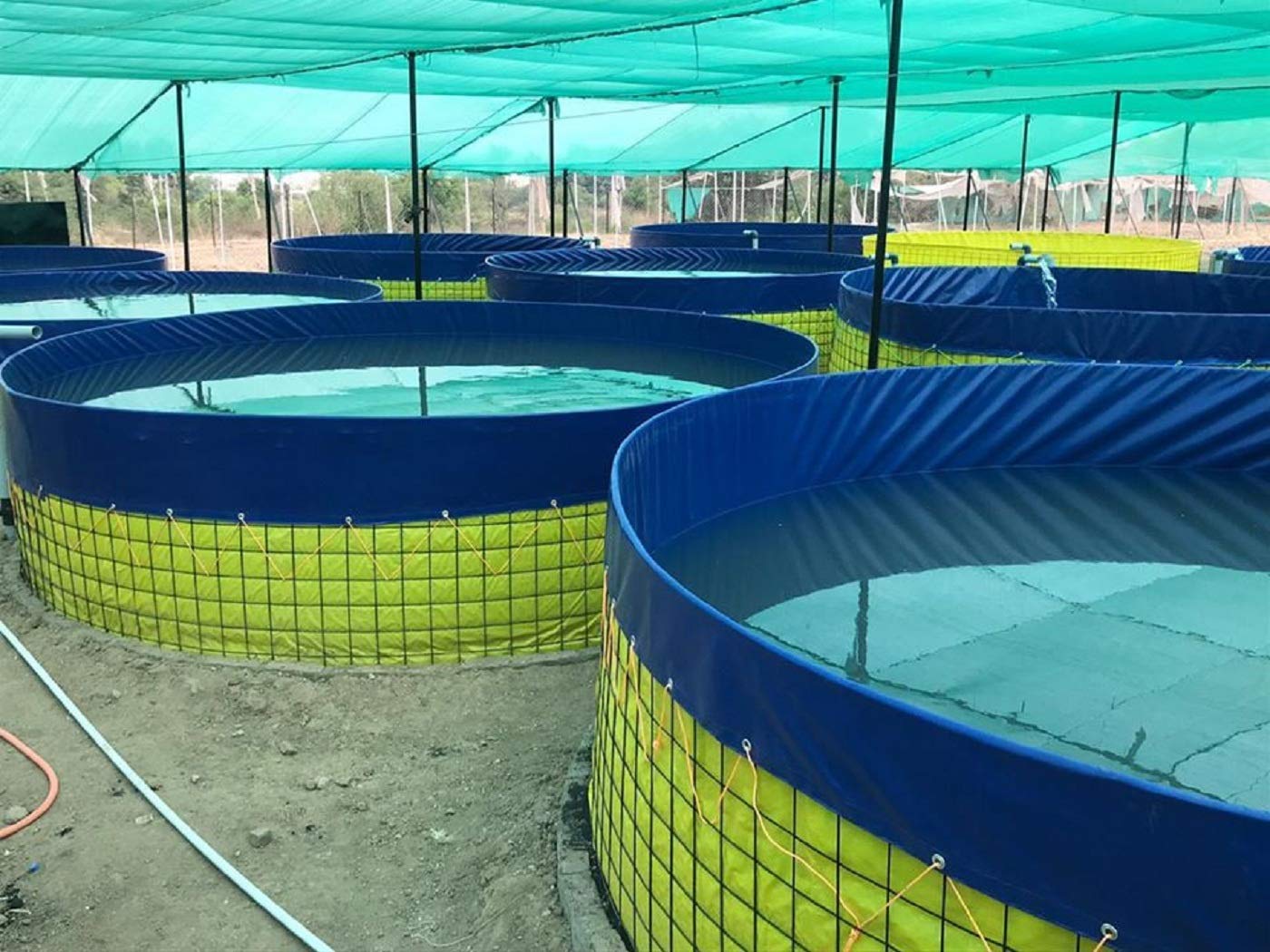
BioFloc Farming Jammu

BIOFLOC farming IN Jammu
Biofloc fish farming is a relatively new method of fish cultivation that has gained popularity in Jammu and other parts of India. This system involves creating a controlled environment for fish growth in tanks, with a high density of beneficial microorganisms that provide a nutritious diet and maintain water quality. In this article, we will discuss the scope of biofloc fish farming in Jammu, including its potential for economic growth, employment generation, and environmental sustainability.
Potential for Economic Growth
The demand for fish in Jammu and the surrounding regions has been increasing in recent years due to a growing population and changing dietary habits. This presents a significant opportunity for farmers to tap into the market by adopting innovative fish farming methods such as biofloc fish farming.
Biofloc fish farming has the potential to significantly increase the productivity of fish farms by creating a more efficient and productive environment for fish growth. This can help to meet the increasing demand for fish in Jammu and generate significant economic growth in the region.
In addition to increasing productivity, biofloc fish farming can also reduce the cost of fish production. This is because the system requires less water and feeds, and has lower labor costs. This can help to improve the profitability of fish farming in Jammu and increase the income of farmers.
Employment Generation
Biofloc fish farming has the potential to generate significant employment opportunities in Jammu. The system requires specialized technical knowledge and skills, particularly in the areas of water quality management and the cultivation of beneficial microorganisms. This creates a demand for skilled labor, providing opportunities for training and employment.
In addition to creating skilled employment opportunities, biofloc fish farming can also generate employment opportunities in related industries such as fish processing and marketing. This can help to create a multiplier effect and stimulate economic growth in the region.
Environmental Sustainability
Traditional fish farming methods often have a negative impact on the environment due to waste discharge and pollution. The biofloc system, on the other hand, is a closed system that recirculates the water, reducing the environmental impact of fish farming.
Biofloc fish farming can also help to reduce the pressure on wild fish populations. By cultivating fish in a controlled environment, farmers can reduce their reliance on wild fish populations and contribute to the sustainable management of fisheries in the region.
Key Considerations for Biofloc Fish Farming in Jammu
Before starting a biofloc fish farm in Jammu, there are several key considerations that need to be taken into account. These include:
1. Site selection: The site of the fish farm should be carefully selected based on factors such as water quality, accessibility, and proximity to markets.
2. Infrastructure and equipment: The biofloc system requires specialized infrastructure and equipment, including tanks, aerators, and filtration systems.
3. Water quality management: The water quality of the system needs to be closely monitored and managed to maintain the health and productivity of the fish.
4. Fish species selection: The choice of fish species should be based on factors such as market demand, environmental suitability, and ease of cultivation.
5. Marketing and sales: Developing a strong marketing strategy and network of buyers is essential for the success of a biofloc fish farm.
Conclusion
Biofloc fish farming has significant potential for economic growth, employment generation, and environmental sustainability in Jammu. By creating a controlled environment with a high density of beneficial microorganisms, biofloc fish farming can increase productivity, reduce environmental impact, and improve fish health. While it requires specialized technical knowledge and infrastructure, farmers in Jammu can set up a successful biofloc fish farm by carefully considering the key factors involved. With its many benefits, biofloc fish farming has the potential to revolutionize the way we cultivate fish in Jammu and contribute to the sustainable development of the region.
